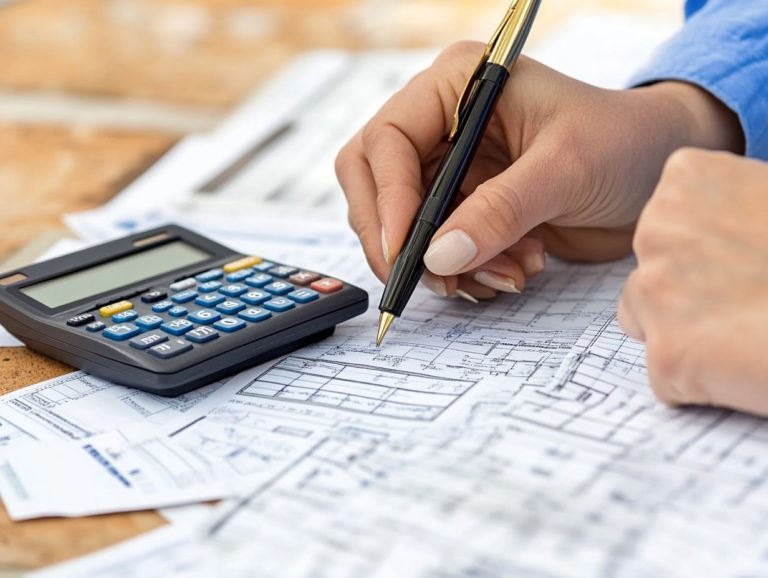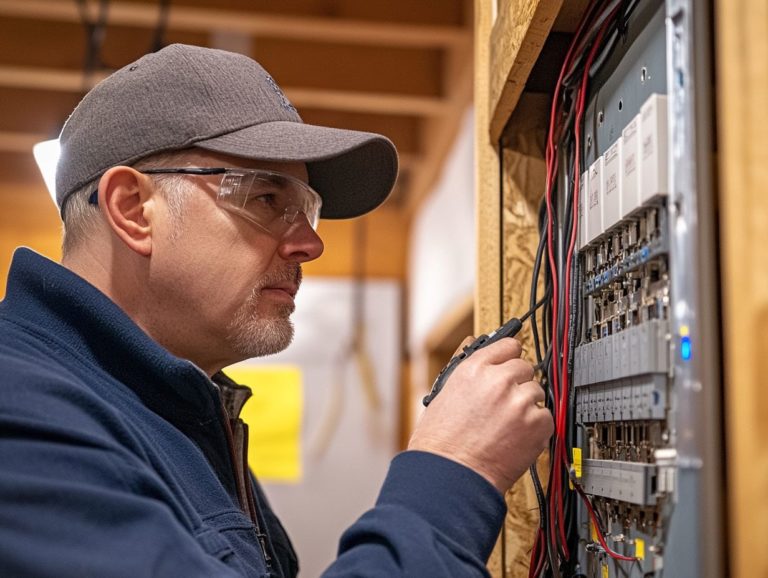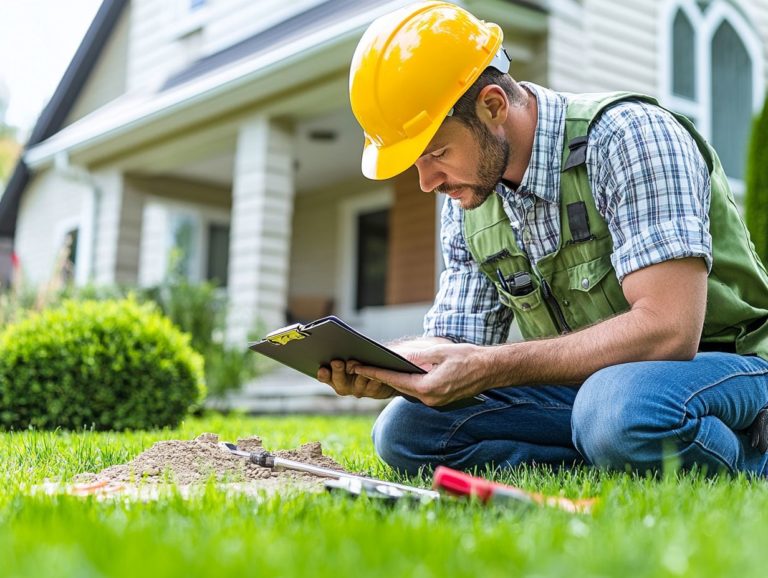The Future of Home Inspections
Home inspections have transformed from conventional techniques into a refined process, heavily influenced by advancements in technology.
Understanding the intricacies of home inspections, particularly the differences between historical and modern practices, provides invaluable insights for homeowners and prospective buyers.
The evolution of tools and technology reshapes the industry, revealing benefits like enhanced efficiency, precision, and safety.
This article explores the evolution of home inspections, the technological innovations revolutionizing the field, and the future of this vital service.
Contents
- Key Takeaways:
- Evolution of Home Inspections
- The Impact of Technology on Home Inspections
- The Benefits of Technology in Home Inspections
- The Future of Home Inspections
- Frequently Asked Questions
- What tech innovations will shape home inspections?
- Will home inspections become completely automated?
- How will Artificial Intelligence (AI) impact home inspections?
- What impact will sustainable and eco-friendly homes have?
- Will the COVID-19 pandemic have a lasting impact?
- How can home inspectors stay current in a changing industry?
Key Takeaways:
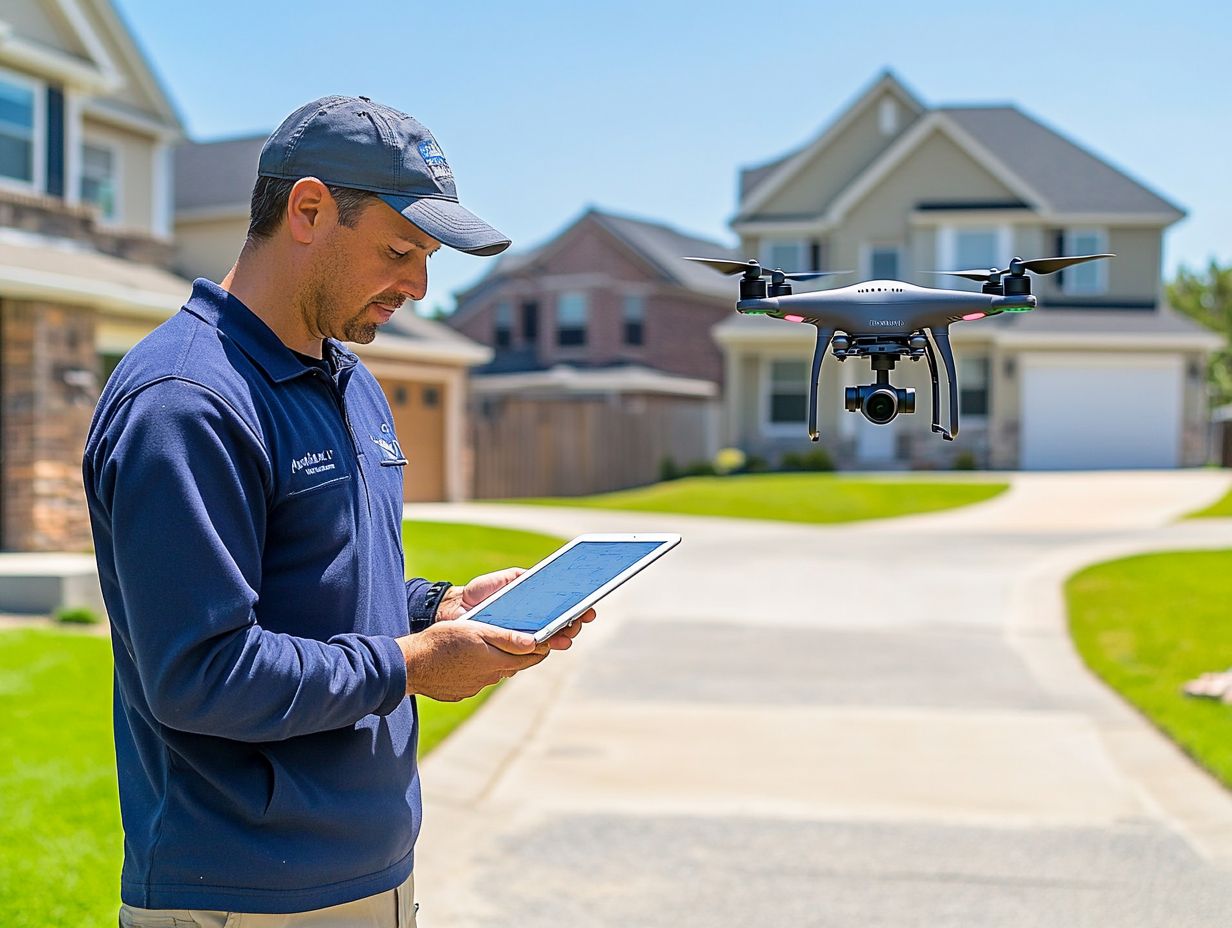
Home inspections have evolved from traditional methods to modern, technology-driven processes.
Technology has increased efficiency, accuracy, and safety in home inspections.
The future of home inspections will bring new advancements that will shape the industry.
What are Home Inspections?
Home inspections play a pivotal role in the real estate market, offering a detailed look at a property’s condition before finalizing a sale. Typically performed by certified home inspectors, these evaluations cover various systems within the home such as plumbing, electrical, and structural components.
The significance of home inspections cannot be overstated; they empower you to make informed decisions while navigating the complex waters of homeownership. A thorough inspection can reveal potential issues that may impact both safety and value, influencing mortgage rates and shaping consumer confidence in the housing market.
By uncovering hidden defects, these assessments provide you with leverage to negotiate repairs or rethink your purchase, ultimately affecting market dynamics. Taking a proactive approach to home inspections can enhance the integrity of the real estate market, ensuring that quality properties rise to the forefront.
As housing conditions evolve, inspectors’ roles become increasingly essential. They tailor evaluations to reflect changing consumer behaviors and the latest building codes, fostering transparency for everyone involved in a transaction.
Evolution of Home Inspections
The evolution of home inspections reflects significant shifts in the real estate market, driven by technological advancements and the growing need for thorough property assessments.
Over time, home inspections have progressed from simple visual evaluations to the use of advanced tools that provide comprehensive analyses of properties. This evolution elevates the inspection process and boosts consumer confidence, equipping homebuyers with valuable insights into potential maintenance needs and concerns.
As technology continues to integrate into the inspection landscape, the industry adeptly adapts to meet the ever-evolving requirements of homeowners and buyers alike.
Traditional vs. Modern Home Inspections
Traditional home inspections usually involved little more than a visual sweep of accessible components. In contrast, modern home inspections embrace advanced technology, elevating the assessment of a home’s condition to a new level.
Today s home inspectors utilize tools like thermal imaging cameras, which detect heat differences in surfaces, and drones to reach hard-to-access areas, boosting the accuracy and efficiency of the inspection process. This tech-savvy approach has transformed the inspection landscape, enabling inspectors to uncover potential issues that might have been missed in traditional assessments making it a game changer for homebuyers seeking detailed insights into their future properties.
Unlike older methods that often relied on manual checklists and the inspector s intuition, these state-of-the-art tools provide a level of precision that instills confidence in you as a client. With modern inspections, expect comprehensive reports filled with images and data analysis, simplifying your understanding of potential repairs and maintenance costs before making a final decision.
The integration of technology speeds up the inspection timeline and offers a clearer picture of a property’s overall condition an essential advantage in today’s competitive housing market, where every detail matters in your purchasing decision.
This is an exciting time for homebuyers! Consider scheduling your home inspection today to ensure you make the best-informed decision possible.
The Impact of Technology on Home Inspections
Technology has transformed the home inspection industry, bringing innovative solutions that boost efficiency and accuracy.
Today, you ll find home inspectors using advanced tools like drones for aerial assessments and thermal imaging a technology that detects heat patterns to find hidden issues. This effectively revolutionizes the inspection process.
Cloud-based software allows for real-time data collection and reporting. This enables you, whether a homebuyer or real estate agent, to access detailed inspection reports instantly.
This technological evolution streamlines the inspection process and gives you the power to make informed decisions about your potential investments, enhancing your confidence in the housing market.
Advancements in Home Inspection Tools
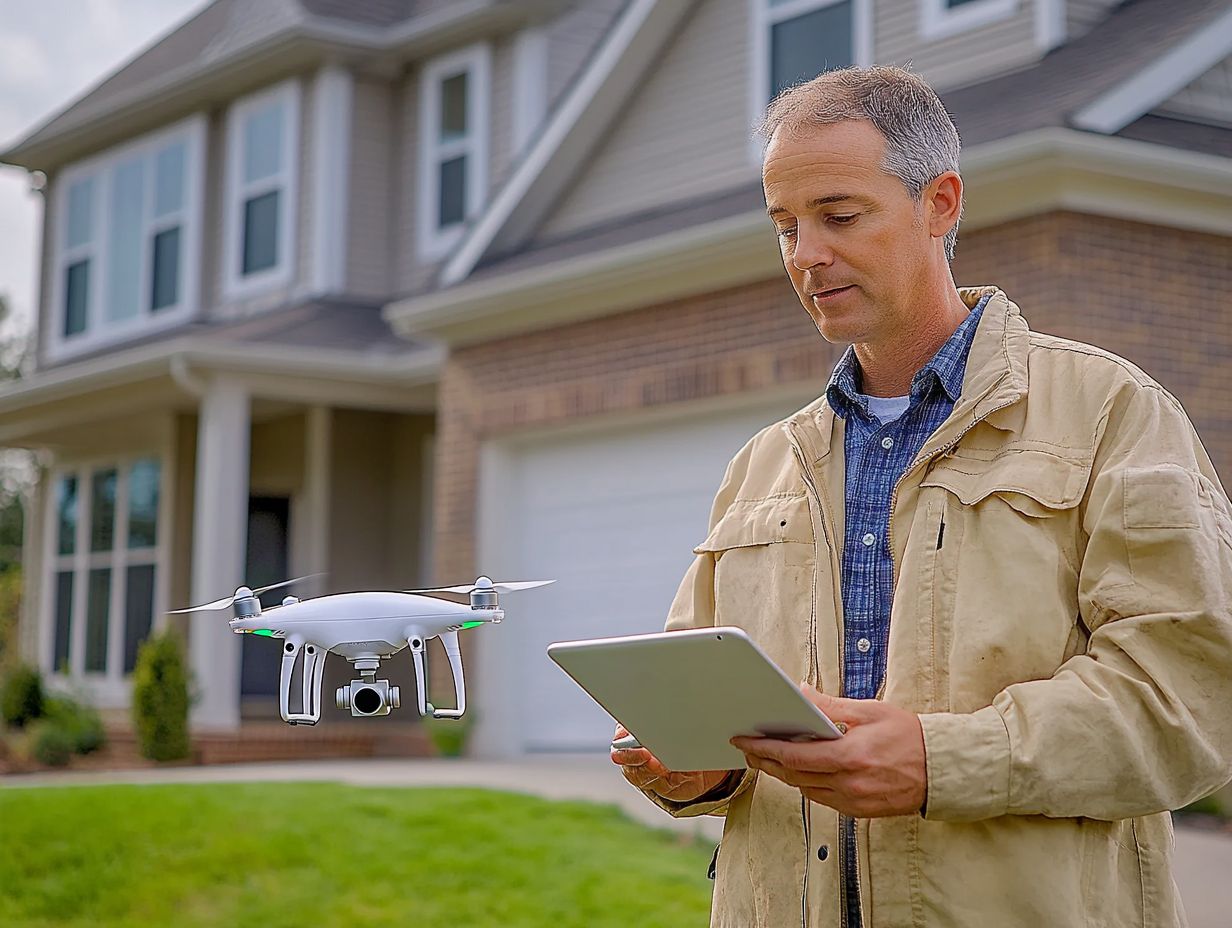
Advancements in home inspection tools have transformed how you assess properties. Innovations like thermal imaging cameras and drone technology lead the way, enabling you to uncover hidden issues such as moisture intrusion or structural damage that traditional methods might miss.
The incorporation of robotics into the inspection process further enhances your evaluations. This technology allows for automated assessments in hard-to-reach areas, increasing the thoroughness and reliability of property assessments.
These advancements improve inspection outcomes while enriching your homebuying experience by offering critical insights into a property’s condition. By integrating state-of-the-art moisture meters and digital reporting tools, you can deliver comprehensive evaluations with unmatched speed and accuracy.
For homebuyers, this means making informed decisions based on detailed and prompt reports. This significantly reduces the risk of unexpected repairs in the future. These enhancements elevate the competitive nature of the real estate market, as properties that undergo thorough inspections naturally draw more interest.
With the confidence that comes from understanding a property’s intricate details, you are given the power to negotiate better, fostering a healthier environment for both sellers and buyers in the market.
Integration of Artificial Intelligence
The integration of artificial intelligence (AI) into home inspection processes marks a transformative moment in the industry, giving you the power to make precise evaluations and data-driven insights. AI-powered software sifts through vast amounts of data from past inspections, helping you identify potential issues and optimize the entire inspection process.
This technology streamlines your workflow and enhances decision-making for homebuyers by delivering predictive analytics on maintenance needs and possible concerns. As this technology rapidly evolves, its impact on home inspections will skyrocket.
With machine learning algorithms at play, AI continually hones its analysis, learning from each inspection to refine future assessments. For you as an inspector, this translates to spending less time on routine evaluations and more time on intricate problem-solving and engaging with clients.
Homebuyers benefit immensely from this advancement, gaining access to thorough reports that highlight both immediate concerns and long-range maintenance forecasts. Such transparency cultivates confidence, giving buyers the power to make well-informed decisions while navigating the often-overwhelming real estate landscape.
With an ever-increasing focus on efficiency and accuracy, the embrace of AI in home inspections is poised to benefit not just professionals in the field, but also the clients they serve.
The Benefits of Technology in Home Inspections
The adoption of technology in home inspections offers you numerous benefits, from increased efficiency to enhanced safety measures for both inspectors and homebuyers.
By embracing advanced tools and techniques, inspectors can perform thorough evaluations in a fraction of the time it once took. This enables them to complete more inspections each day.
Technologies like thermal imaging and drones also reduce the risks associated with accessing hard-to-reach areas, ensuring a safer experience for inspectors while providing you with comprehensive insights into your prospective property.
These advantages not only elevate consumer confidence in the home inspection process but also significantly impact the real estate market.
Increased Efficiency and Accuracy
Increased efficiency and accuracy in home inspections highlight the compelling advantages of using modern technology. With tools like heat-detecting cameras and drones, you can assess properties quickly and accurately.
This not only cuts down the time for evaluations but also improves the quality of your reports. Such advancements empower you, the inspector, while ensuring that homebuyers get accurate and timely information about potential property issues.
This helps them make well-informed choices in the competitive real estate market.
The use of software for scheduling and reporting has further streamlined the inspection process. Imagine digital platforms that let you create detailed reports on-site, complete with photos and findings. You can share these insights instantly with your clients, offering a quick turnaround invaluable for homebuyers navigating a fast market.
Tools like moisture meters and radon testing equipment help you evaluate hidden dangers that might escape notice, significantly reducing the risk of unexpected repairs after purchase. In essence, technology not only enhances your capabilities as an inspector but also builds greater confidence in buyers regarding their property decisions.
Enhanced Safety Measures
Enhanced safety measures in home inspections stem from technology integration, minimizing risks for inspectors while providing thorough evaluations.
With advanced tools like heat-detecting cameras, inspectors can uncover underlying issues such as electrical faults and moisture problems without invasive methods.
This method cuts accident risks, making inspections safer and faster, benefiting both sellers and buyers.
As you gain confidence in these high-tech assessments, the entire real estate market thrives, with well-inspected properties becoming even more appealing.
Embracing technology ensures a safer, more transparent home buying experience for everyone.
The Future of Home Inspections
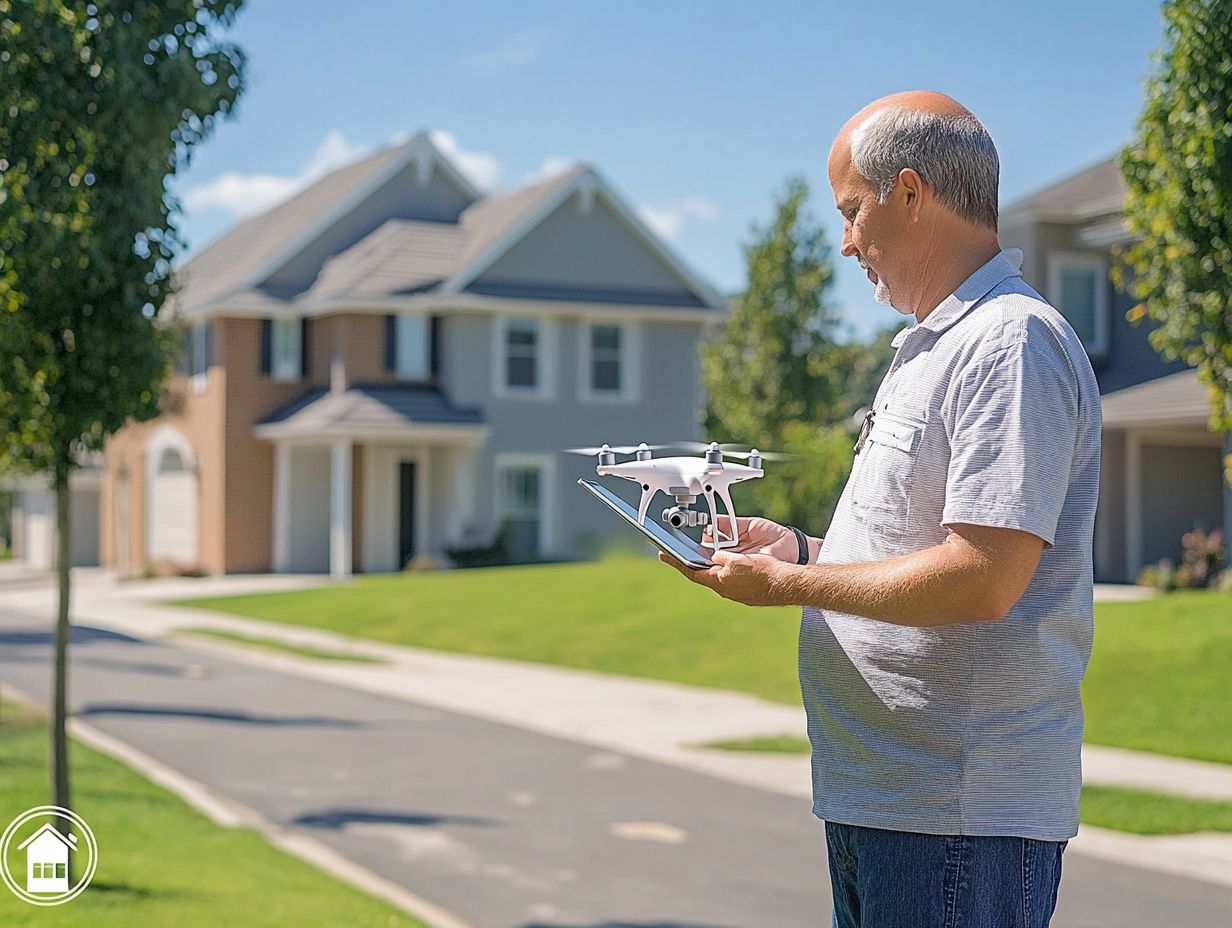
The future of home inspections is on the verge of remarkable transformation. Predictions for 2024 highlight ongoing technology integration and the changing market landscape shaping the industry.
As you respond to consumer demand for thorough and efficient property evaluations, expect inspection processes to adopt increasingly advanced tools and techniques, including AI and robotics.
Shifting market conditions driven by mortgage rates and economic growth will influence the methods and standards of home inspections. This reality calls for adaptability from inspectors and service providers like you to remain at the forefront of the industry’s evolution.
Predicted Technological Advancements
Predicted technological advancements suggest a future where AI and cloud-based software will enhance your inspection process and data management. As you rely more on these technologies, you can expect a significant boost in the accuracy and efficiency of home evaluations.
This evolution benefits you as an inspector and provides homebuyers immediate access to essential property information, leading to a more transparent and informed home buying experience.
These innovations aim to automate routine tasks, allowing you to focus on more complex evaluations and enhance your ability to detect issues traditional methods might overlook.
Cloud-based platforms will make it easy to store and share inspection reports, creating a centralized hub of information accessible when needed.
As a result, inspection timelines will shorten, and collaboration between buyers, sellers, and real estate professionals will become more cohesive, leading to quicker decision-making.
Embracing these tools positions you to redefine the standards of inspection service and customer satisfaction in the industry.
Potential Changes in the Industry
Potential changes in the home inspection industry are driven primarily by what buyers want and the shifting dynamics of the real estate market. As a homebuyer, you increasingly seek detailed insights into properties before making decisions. Home inspection services will need to adapt to meet these expectations. This evolution could lead to new standards and practices within the field.
Factors such as interest rates, economic growth, and the overall housing market will significantly shape the direction of home inspections. It’s essential to stay informed about trends and innovations to remain competitive. In this era of heightened awareness regarding property conditions and environmental concerns, you re doing your homework, and it shows!
This growing trend highlights the necessity for thorough inspections that extend beyond basic structural assessments to include evaluations of energy efficiency and potential health hazards. As the market fluctuates with economic conditions, the fluctuations in housing prices and inventory levels will likely influence the demand for home inspections.
This may prompt professionals to refine their methodologies, embrace technology, and enhance their reporting practices to better serve clients like you. Adapting to these influences not only boosts your satisfaction but also solidifies the role of inspectors as essential advisors in real estate transactions.
Frequently Asked Questions
What tech innovations will shape home inspections?
In the future, we can expect more widespread use of technologies like drones and virtual reality in the home inspection process. Advancements in home inspection software and tools will likely make the process more efficient and accurate.
Will home inspections become completely automated?
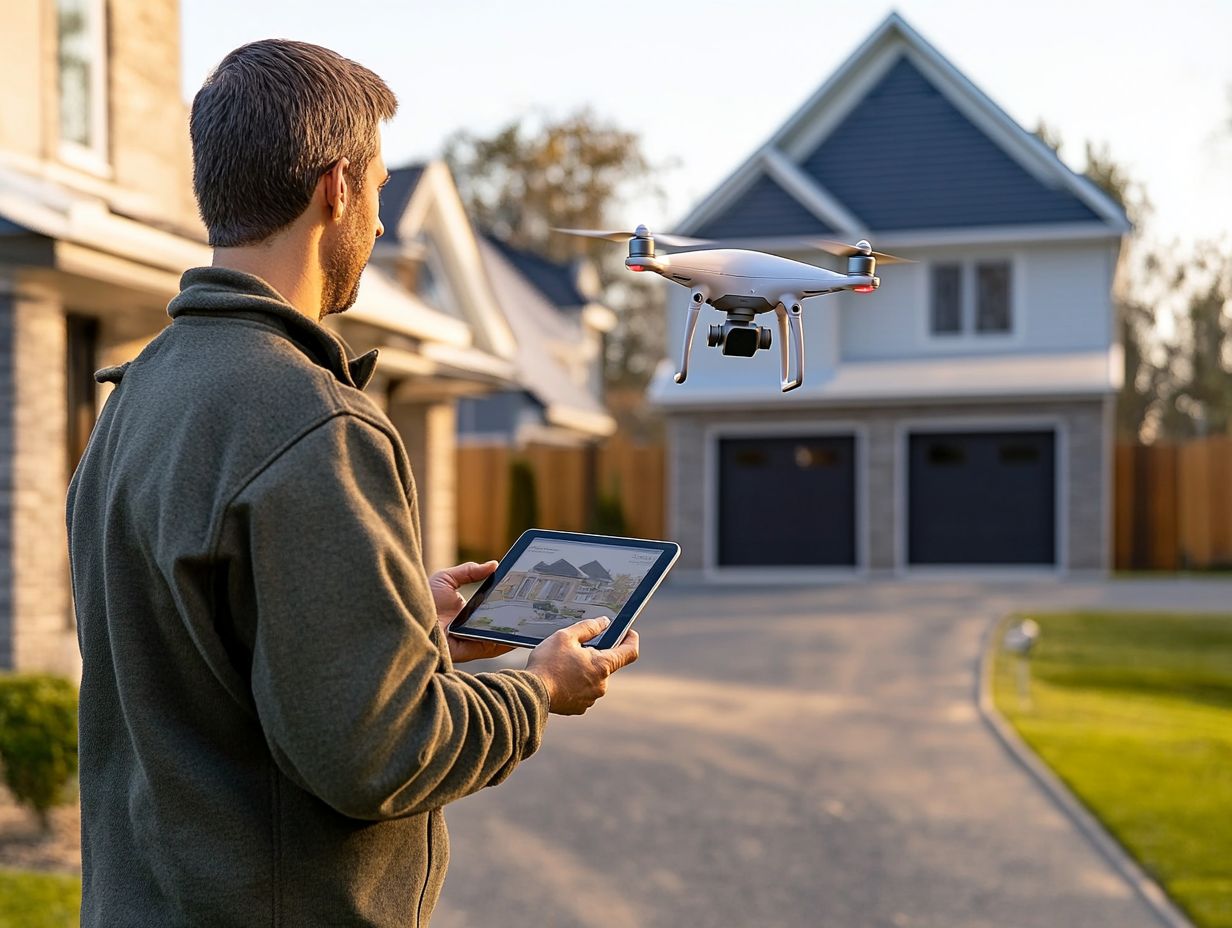
While technology is advancing, it’s unlikely that home inspections will become completely automated. Home inspectors provide a crucial human element in assessing the condition of a home and identifying potential issues that automated systems might miss.
How will Artificial Intelligence (AI) impact home inspections?
AI, or Artificial Intelligence a technology that simulates human intelligence can greatly benefit the home inspection process by analyzing data and providing real-time insights. This can help home inspectors make more accurate and efficient assessments, leading to better home inspections for clients.
What impact will sustainable and eco-friendly homes have?
The growing trend toward sustainable and eco-friendly homes will likely have a significant impact on the future of home inspections. Inspectors will need to be knowledgeable about green building practices and the role of technology in home inspections to properly assess these types of homes.
Will the COVID-19 pandemic have a lasting impact?
The COVID-19 pandemic has already influenced the home inspection industry, with many inspectors implementing virtual and remote inspection options. These practices will likely continue, providing more convenience and flexibility for clients.
How can home inspectors stay current in a changing industry?
Continuing education and staying informed about industry advancements are essential for home inspectors to remain relevant and provide high-quality services. Attending conferences, workshops, and networking with other professionals are excellent ways to stay updated on the future of home inspections.
Act now to stay ahead in the market! Contact a professional to learn more about home inspections.


